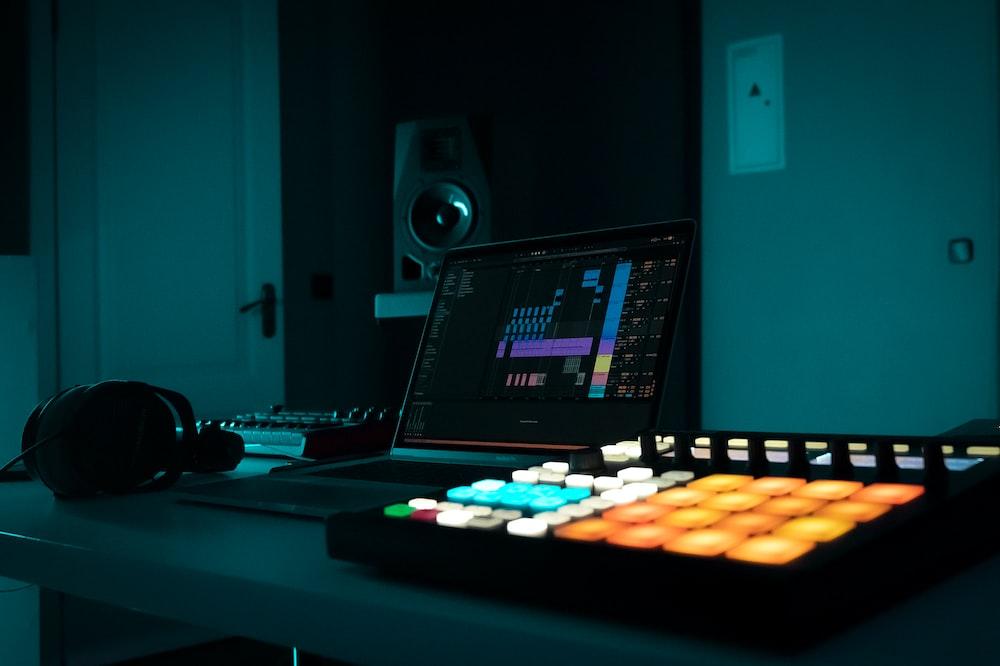Have you ever dreamed of grabbing just your computer and keyboard, sitting down and crafting, from start to finish, a musical masterpiece that resonates with your creative vision? If yes, you’re ready to embark on the journey of learning about music production. This transformative adventure can convert your passion for music into a powerful craft, transforming musical inspirations into melodic realities. This article unravels what a comprehensive music production course involves and how it sets you on the path to becoming a proficient music producer.
Understanding the Notes: What a Music Production Course Entails
A comprehensive music production course is much like an unfolding ma. It starts by laying out the foundational terrain—music theory, which includes key building blocks like melody, harmony, rhythm, and more.
As you progress, the course begins to ascend into more complex domains like sound engineering, which provides an understanding of recording, manipulating, and reproducing sound. Next, you move on to mastering and mixing, two crucial stages in the post-production process that polish and enhance your music, making it ready for public listening.
However, a well-rounded music production course doesn’t confine itself to theoretical knowledge. It extends into practical applications, equipping you with hands-on experience in using software and hardware tools to convert your abstract creative concepts into audible, tangible music. From crafting a simple melody on a digital audio workstation (DAW) to processing a multi-track recording through mixing and mastering, you get to practice and implement what you learn. This makes the process of learning about music production a well-balanced mix of theory and practice, creativity and technology.
From Theory to Practice: Course Highlights
A typical course on how to start music producing weaves a rich tapestry of knowledge and skills, ensuring a holistic understanding of music production. Here’s what you can expect to learn:
- Music Theory: Explore the foundation of music, like scales, chords, and rhythm, crucial for creating your compositions.
- Composition and Songwriting: Learn to fuse various musical elements to create emotionally resonant and engaging pieces of music.
- Digital Audio Workstations (DAWs): Get hands-on experience with industry-standard software such as Ableton Live, Logic Pro X, and Pro Tools.
- The use of software plugins such as Software Synthesisers (ANA 2, Serum, etc.) as well as FX Plugins such as Reverbs and Delays.
- Mixing and Mastering: Delve into the art of balancing and enhancing different elements of a track to create a polished, final piece.
These elements provide a comprehensive understanding of learning about music production.

Digital Evolution: How Courses in Music Production are Adapting to Tech Advances
Music production courses are not static; they are fluid and evolve with the dynamic pace of technological innovations. As software synthesizers become more powerful and digital mixers more sophisticated, these courses adapt to incorporate the latest tools and techniques. They empower students to leverage these tools to create unique soundscapes, all while keeping them updated with industry standards.
Furthermore, you no longer are restricted to having to pay thousands of dollars in University tuition fees to get access to these kinds of Courses. These days, things have moved on. A is all generally delivered online and on demand. Just think of Netflix for music production!
Career High Notes: Opportunities after a Course in Music Production
Completing a music production course unlocks a world of opportunities. You could become a music producer, work as a sound engineer, or even launch your own recording studio. Furthermore, the skills acquired from these courses extend beyond traditional music production, offering prospects in related fields such as film scoring, video game audio design, and live sound engineering.
Producing Your Future: Career Paths and Prospects
The career trajectory post-training varies greatly, depending on personal ambitions and aspirations. Some users step into the mainstream music industry, working with artists and record labels. Others choose to freelance, offering services such as mixing, mastering, or producing tracks for various clients. Yet, another path could be sharing your knowledge by teaching music production.

In Conclusion
A music production course serves as an invaluable stepping stone into the vibrant world of sound creation. It equips you with the skills and knowledge needed to transform your musical ideas into tangible tracks. So, if you’ve been contemplating how to start music production, enrolling in a course could be the perfect launchpad.
The world of music production welcomes everyone, regardless of their background. Whether you’re a seasoned musician wanting to self-produce or a complete novice hoping to break into the industry, there’s always something new to learn.
Got any experiences or questions about learning music production? Feel free to engage with us and share your thoughts. We’d love to hear from you!
